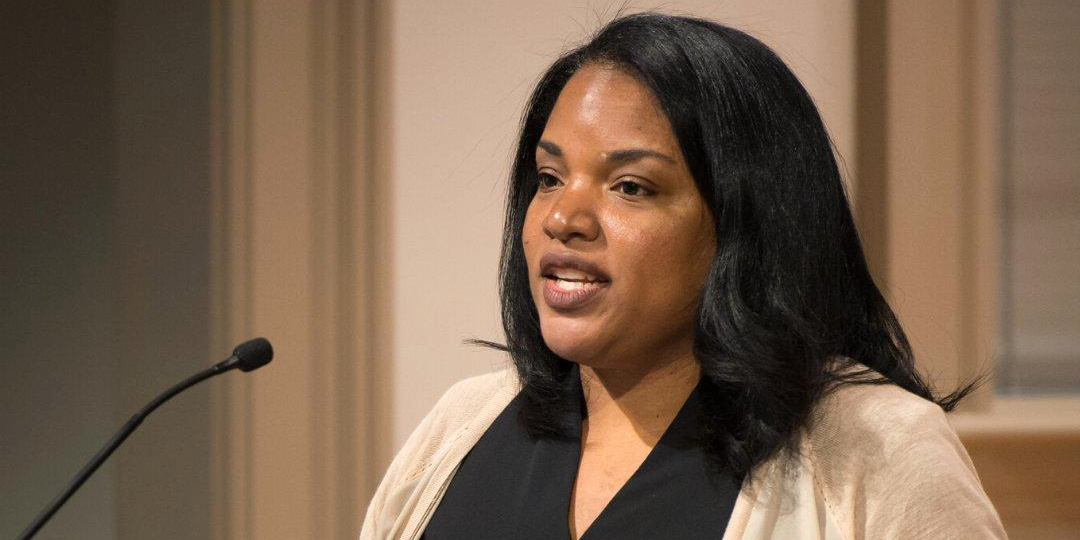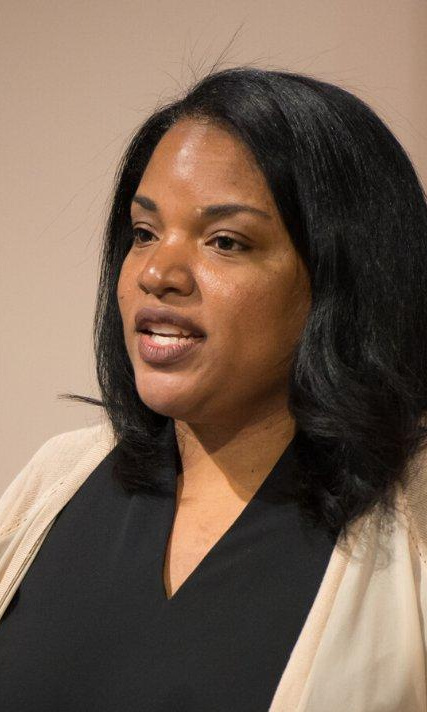‘There's Been Very Little Attention, Despite a Great Deal of Advocacy, to Our Incarcerated Residents’JANINE JACKSON  Janine Jackson interviewed the Sentencing Project’s Nicole Porter on Covid and decarceration for the August 7, 2020, episode of CounterSpin. This is a lightly edited transcript. MP3 Link Janine Jackson: It's hard to think of a worse place to be in a pandemic than a prison—crowded, unsanitary, inadequate healthcare. And, indeed, Covid-19 is spreading in US jails, prisons and immigration detention centers. Research by the Marshall Project reports at least 78,000 confirmed cases and 766 deaths among detainees through July 28, numbers that are certainly low. At one Ohio prison. virtually every inmate tested positive. With the recognition that a prison sentence should not be allowed to become a death sentence, numerous advocates have been calling for, and some states undertaking, decarceral efforts, including releasing those who are medically vulnerable and reducing low-level arrests. The treatment of incarcerated people in the face of a pandemic only highlights the ongoing problems with the prison system, including its racial bias. It also provides an opening to talk about decarceration more broadly—even when there isn't a life-threatening virus afoot—and what needs to happen to allow it to work for individuals and communities. Those questions, asked deeply enough, might change the conversation about why so many people are going to prison in the first place. Joining us now to talk about Covid and decarceration is Nicole Porter. She's director of advocacy at the Sentencing Project. She joins us now by phone from Houston. Welcome to CounterSpin, Nicole Porter. Nicole Porter: Thank you for having me. JJ: As I said, some states are taking action, decarceral steps in the face of Covid-19. What has that looked like? And is it sufficient, do you think? NP: No, it's not sufficient. Some states have taken action, and some states are doing more than other states, but in reality, no state is doing what they should be doing. So, most recently, New Jersey lawmakers adopted legislation that has the potentiality to release up to 3,000 incarcerated prisoners in New Jersey. Those would be people within 10 months of release, who have certain sentences. In other states, governors have taken action to release people who were expected to be released anyway during 2020, that includes gubernatorial actions in California, Illinois and New York. Much of that has moved up release dates for people who were within a few months of their already-planned release. And while it is a good step to move those people out of prison sooner, so that social distancing could be followed within prisons, it’s still not enough. What the United States has done, even collectively, pales in comparison to what other countries have done—even more autocratic countries, like Iran and Turkey, that have also released people who should never have been in prison to begin with, but their releases number tens of thousands of individuals. JJ: Wow. I think, also, of all those people who are in jail before they've even had a trial. NP: There have also been significant reductions in the jail population as well. And much of the decarceration impact has happened at the jail level, by changing practices that could be adopted even when we're not going through a global pandemic. So in order to reduce jail populations, practitioners in many counties around the country decided not to admit residents for certain infractions. So they stopped arresting and booking into local county jail, residents on traffic violations and other minor offenses. Those are practices that could be implemented even when we're not going through a public health crisis. And the same, too, at the state level within prisons; much of the reduction in state prison populations is not because of active efforts to decarcerate, or move people out, but to reduce admissions into prisons. And there's a range of reasons why that's happened over the last couple of months since the pandemic started. One is that courts have stopped or delayed proceedings, but with the goal of quarantine and social distancing within courts, which can be congregate settings. Another is that state prison systems refuse to admit newly sentenced prisoners from local lockup. Even conservative states like Florida and Oklahoma had those policies in place in the midst of the quarantine period. But that also influenced factors at the local level, because newly sentenced prisoners were still confined, and those changes required local officials, from sheriffs to district attorneys, to make changes around their local jail population. So there's a range of different reasons why prison and jail populations have decreased during the pandemic. But it's still not enough; it's still nowhere near what needs to be happening. JJ: What about at the federal level? Have incarcerated people been considered at all in these big pieces of Covid legislation that we've seen coming down? NP: Not enough; there has been some decrease at the federal level. Some federal prisoners have been moved to home confinement. Federal prisoners who are medically vulnerable, who are elderly, have been released from prisons and allowed to continue their sentence under home confinement; there has been an ongoing effort to call attention to the incarcerated population in the CARES Act and other stimulus packages that have made their way through Congress. But there's been very little attention to that, despite a great deal of advocacy and attempt to call attention to our incarcerated residents. One outcome that's been helpful in the midst of this pandemic is the easing of telephone and email fees that prisoners are generally required to pay in order to stay in contact with their family and loved ones. So during the pandemic, those fees have been waived. So that's good, but it's still not enough, because there are people currently incarcerated who are at risk of contracting Covid, and if they do get the coronavirus, they could potentially have a fatal outcome from it. So this country needs to be doing a lot more to reduce the number of people in confinement, so that social distancing can be practiced for those left behind, and others can be moved to the community where they can better practice social distancing in the free world. JJ: On the one hand, letting people out of prison is automatically frightening or sounds wrong to some people. But on the other hand, there's something different in the wind; an increased recognition that the US carceral system isn't just racist, isn't just unfair, but that it doesn't contribute to public safety in the way that people have been told. So “Abolish ICE” and “Defund Police” aren't jokes anymore. People are open to new visions. So I would like to ask you to talk just a little bit, if you would, about what it would take, what needs to be built, to make decarceration work? It's not just ”letting people out,” and nothing more.  Nicole Porter: "Sentencing in the United States is way too extreme and has racist roots, and there should be an intentional effort to revisit them and recalibrate them." NP: It should be about letting people out, because the system is way too extreme. There's a man down in Louisiana whose life prison term was upheld for stealing hedge clippers, because he had four prior convictions, and he was convicted under that state's habitual offender law. That man should not be in prison today. And letting him [out]—and other people convicted under that state's habitual offender law, for minor property offenses— should happen today, without any requirement that those people have to go through additional hoops to prove that they aren't a threat to public safety; they shouldn't have been in prison for as long as they have been. There's another man in Mississippi, whose prison term was upheld earlier this year, before the pandemic even hit, because he had a cellphone while he was booked into jail, which means that the police officers who put him into jail failed at doing their job, because they did not properly search him. And that man was sentenced to 12 years in the state lockup, and that prison term was also upheld by the state supreme court. That man should not be in prison. And all prisoners in Mississippi with minor property offenses, whose prison terms were too extreme, should be released, without question and without any additional hurdles that they have to go through, because those are racist laws that are extreme, and unduly burden and disappear Black residents from community life and from their families, because of who lawmakers imagine to be convicted of those laws, and the fact that they don't care about those individuals’ lives, their futures or their presents. That said, in order to lean into the conservative gaze that has to be explored for credible reforms to be adopted at the state and at the federal level, there are a range of considerations that advocates and lawmakers can be working on. One is that the sentencing in the United States is way too extreme and has racist roots, and there should be an intentional effort to revisit them and recalibrate them. There’s a practice we encourage at the Sentencing Project called racial impact statements, which look at the racial disparity of sentencing laws and their impact on prison systems. Lawmakers could adopt those policies within states; in states where they are already the law, states like New Jersey and Oregon, lawmakers could expand what racial impact statements consider, and could go through a deliberate process where they look at how the current sentencing practices result in racially disparate outcomes in state prison populations, and intentionally go back to repair the harm. One would be recalibrating property offenses that can disappear people away for the rest of their lives, like in Louisiana or, for more than a decade, like in Mississippi, and there are many states, if not all states, have similar extreme outcomes for property offenses, ranging from robbery to burglary. JJ: I certainly don't mean to be leaning into the conservative gaze; I really only mean to say that I think folks are due something when they come out of prison, beyond letting them out, which is the first thing and the ultimate thing. NP: I think folks are due something, and I think communities are due something. So that could be a part of a reparations agenda and a racial justice agenda. There's a concept that has never been fully implemented, called justice reinvestment, which was pioneered in the early 2000s. And the theory is that every year, millions of dollars are extracted from high-incarceration communities by disappearing residents and, with them, resources: their potential labor and contribution to their communities, as well as public monies that are spent on their incarceration, rather than on investments in those high-incarceration communities -- quality housing, equitable funding of public education and the funding of other public support and social services, to communities that have been divested from over the last 30 to 40 years following civil rights, when many white folks decided they didn't want to live next to Black people. So there's a lot that people are owed, and there's a lot that communities are owed. And decarceration, and reprioritizing and shifting resources back into those communities through an intentional effort, through reparatory justice and through some redress of the significant harm that entire communities have undergone during the era of mass incarceration, would be one step to address what people are owed. JJ: We've been speaking with Nicole Porter, director of advocacy at the SentencingProject. They're online at SentencingProject.org. Nicole Porter, thank you very much for joining us this week on CounterSpin. NP: You're welcome. | 


No comments:
Post a Comment
Note: Only a member of this blog may post a comment.